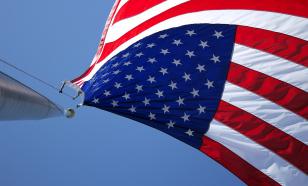How Far Can Media Go in Covering Terrorist Attacks?
After the tragic events in Moscow and Kizlyar, the Russian society resumed the discussion about the boundaries when covering these events and those who should set these boundaries. On the one hand, some members of the State Duma suggest introduction of legal boundaries for covering terrorist attacks and their consequences. On the other hand, journalists (and they are not alone) believe that such boundaries already exist. For example, they mention the Anti-terrorist Convention signed by the leading media outlets after the events at “Nord-Ost” in 2002.

There is some controversy regarding whether or not the convention is sufficient. It is worth mentioning that the issue was brought up only after the terrorist attacks in Moscow metro in March 2010. It happened when an issue was raised regarding coverage of such incidents. Before these attacks the convention must have fully fulfilled its function.
In a way the discussion was especially heated because it was brought up at a high state level. During a meeting with Dmitry Medvedev, the heads of lower and upper houses of Parliament Boris Gryzlov and Sergey Mironov criticized the way the media covered the events in Moscow and Kizlyar. They were supported by Vladimir Zhirinovsky, the LDPR leader, who mentioned that the term Shakhid used by the media when describing suicide bombers, was inappropriate.
Russia Today: Recent history of terrorist attacks in Moscow
The President agreed that the media should be more accurate with the terminology in the events coverage. At the same time, he noted that there was nothing special in the fact that the media was criticizing the actions of law enforcement agencies, special services and officials in general after the events. “The matter is, in a civilized society it is inappropriate to antithesize struggle with terrorism and civil community. This way you can come to absolutely immoral conclusions,” Medvedev stressed.
Of course, almost all media outlets reported on this episode of the Kremlin meeting. They also reported on the statements regarding the appropriateness of terminology. Yet, the very next day some media outlets wrote about the attacks again, using the word Shakhid, and they used it in the sense that was criticized a few hours earlier.
There is a difference between various approaches to the assessment of the events. Yet, the problems occur when this difference becomes a cause for angry arguments. This is true for the conflict between several media outlets and the Duma speaker Boris Gryzlov regarding their quoting of the statements of the rebel leader Doku Umarov. This is also true for the reaction to the initiative of Robert Shegel, a member of the lower house, regarding a legislative ban for the publications of terrorists’ statements by the media.
The same is true for the opinion of Vladimir Vasiliev, Chairman in the Committee on National Security in the State Duma. During a meeting of the lower house on Wednesday he expressed his frustration with the way the Russia media covers incidents, from road accidents to terrorist attacks. He thinks that publication of incorrect materials is unacceptable.
Vladimir Vasiliev stressed that the issue has so be resolved either by the media (and management of media outlets) or at the legislative level.
He emphasized that Russian media has a much more liberal system than other countries.
“Remember explosions in London, what tough reaction it was and failure to provide information. Look at the US, is it possible to have materials there similar to what we read here?” Vasiliev stated.
It is not hard to guess that this statement would cause a negative reaction from the journalist community.
“We have a general problem in this country – we always redistribute responsibilities, who is responsible for what, and who is to blame. Sometimes our citizens are addressed with a call to action to stand up against something, and our journalists, on the contrary, are suggested to shut their mouths and keep silence,” said Yelena Zelinskaya, vice president of the Russian non-profit journalist organization “MediaSoyuz.”
“What’s important is that we have gained certain experience in the past 20 years. I think that it’s time to understand that this is, as I call it, a “soviet syndrome” – to keep silence about an issue, pretend it does not exist, and then it will disappear. Our long-lived experience should teach us that issues do not get solved under the “crust” of silence,” she said.
"I have a feeling that in a critical situation our officials developed a desire to find the ones to blame not where they can usually be found,” Zelinskaya told Pravda.ru.
Alexander Brod, a member of the Russian Public Chamber, head of the Moscow Agency for Human Rights, agrees with her: “Legislative norms that allow administering criminal and administrative responsibility towards journalists are sufficiently developed.”
He mentioned the Anti-terrorist Convention that obliges journalists not to publish statements of terrorists. “The other thing is maybe not all media outlets are familiar with this convention. This is the task for the Union of Journalists of Russia and media communities to distribute the provisions of this convention and bring it to the attention of journalists,” he told Pravda.ru.
It seems that this is what is missing. It seems logical to ask a question “why, if the convention has been in effect for several years already, the media is being criticized for inappropriate materials regarding terrorist attacks? What stops the Union of Journalists from “active distribution” of the provisions of the convention if they contain the description of all boundaries required in these situations?”
The media and officials are not the only issues. “If officials are the only ones that require journalists to be professional and stick to the rules of ethics and if non-profit organizations require the same – it is not enough. People should be mature enough to request quality press from journalists,” said Alexander Brod.
But how can they “require quality press” or any quality for that matter if, for example, one of the leading papers in the country publishes photos of the victims of terrorist attacks the next day after the attacks?
Alexander Brod believes that “if citizens are unhappy with it (publication of victims’ photos) they should publicly express their frustration instead of making it a topic of kitchen talks.”
"They have an opportunity to speak publicly, address journalist organizations, and speak on-line. Then the media will see that consumers are not a faceless crowd that will eat anything they are given without wincing,” he stressed.
"I think that citizens have to understand that their opinion matters, and the media should take their feelings into consideration,” said Brod.
"Clearly, there is a black sheep in every flock. Clearly, there are so-called “journalists” who are chasing ratings and sensations and are ready to publish any horrible pictures. But this is something condemned by journalists themselves. I would like to see the same kind of organization in other institutions, for example, in law enforcement agencies so they would also criticize each others’ actions, “said Yelena Zelinskaya.
"Journalists are not perfect. They may be not very accurate at times, overly emotional, can make mistakes. This happens. But we must not forget that journalists, in addition to being professionals, are ordinary citizens. They and their loved ones also walk in the streets, may fall victims of car accidents, or get down the metro and fall victims of incidents. They are also concerned,” she said.
"The conflict between officials and media, when they start shifting blame, is the very thing that separates them. We should not build barricades between various institutions and structures and look for someone to blame, we should unite our efforts. This is the most important thing, I think,” she emphasized.
Oleg Artyukov
Pravda.Ru
Subscribe to Pravda.Ru Telegram channel, Facebook, RSS!


